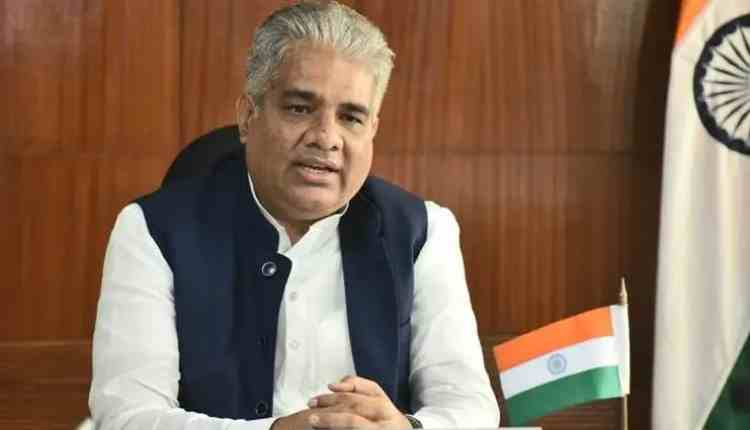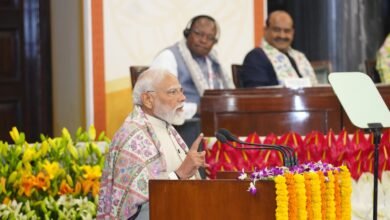Kerala Government Criticized for Wayanad Disaster By Union Environment Minister

News Mania Desk/Agnibeena Ghosh/6th August 2024
Union Environment Minister Bhupender Yadav has placed blame squarely on the Kerala government for the recent disaster in Wayanad, which resulted in the tragic loss of over 200 lives. According to Yadav, the calamity was exacerbated by the state’s failure to regulate illegal settlements and mining activities in the environmentally sensitive region.
The disaster occurred on July 30, when relentless rains triggered two devastating landslides, leading to significant casualties and widespread destruction. Yadav criticized the Kerala government for permitting unregulated commercial activities and unauthorized construction in Wayanad’s fragile ecological zone. He stated that no environmental clearances were issued for development projects in Kerala over the past decade, with the exception of one project—a four-lane tunnel road in Anakkampoyli-Kalladi-Meppadi, which has yet to commence.
The Union minister highlighted that the expansion of human habitats in ecologically delicate areas requires meticulous assessment of geological and environmental conditions, including rock stability, soil topography, and vegetation structure. Yadav pointed out that the Kerala government had failed to address these critical aspects, contributing to the disaster. He also mentioned that in the last three years, Kerala had granted environmental clearance for three quarries, two of which are located in Wayanad district.
Madhav Gadgil, former chairman of the Western Ghats Ecology Expert Panel, supported Yadav’s remarks by labeling the disaster as a “man-made tragedy.” Gadgil attributed the catastrophe to the Kerala government’s neglect of essential ecological recommendations, which could have mitigated the impact of the landslides.
In response, Kerala’s Forest Minister AK Saseendran condemned Yadav’s statements as untimely and potentially motivated by ulterior motives. Saseendran suggested that Yadav’s remarks might be an attempt to justify withholding financial aid to Kerala, which has been seeking national disaster status for the affected areas. The Kerala government has called for substantial financial support to address the aftermath of the disaster and to prevent future occurrences.
The office of Kerala’s Chief Minister and the state information department have yet to respond to requests for comment on the matter. Meanwhile, the issue of environmental management in the Western Ghats remains contentious. The Gadgil-led panel, established in 2010, was tasked with devising conservation strategies for this biodiverse region. Between 2014 and 2020, Kerala accounted for a significant portion of landslides in India, underscoring the need for effective environmental policies.
Additionally, the K. Kasturirangan-led working group, formed in 2013, recommended declaring 37% of the Western Ghats as eco-sensitive zones and imposing a ban on mining, quarrying, and thermal power projects. Despite these recommendations, final notifications to designate these areas as eco-sensitive have been delayed due to state objections.
The Western Ghats, a region renowned for its rich biodiversity, has faced frequent cyclones in recent years, further straining its ecological balance. The environment ministry has issued several draft notifications to declare parts of the Western Ghats as eco-sensitive, but final decisions remain pending.
As the situation unfolds, the focus remains on addressing the immediate needs of the affected populations in Wayanad and implementing long-term strategies to protect the region from future environmental disasters.






